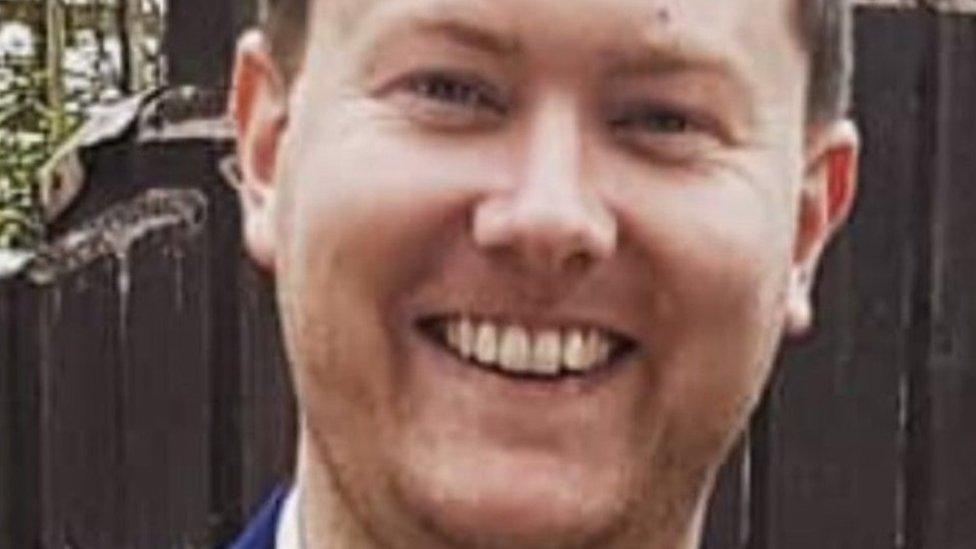Road crash deaths: Helping grieving relatives on The Road Ahead
- Published
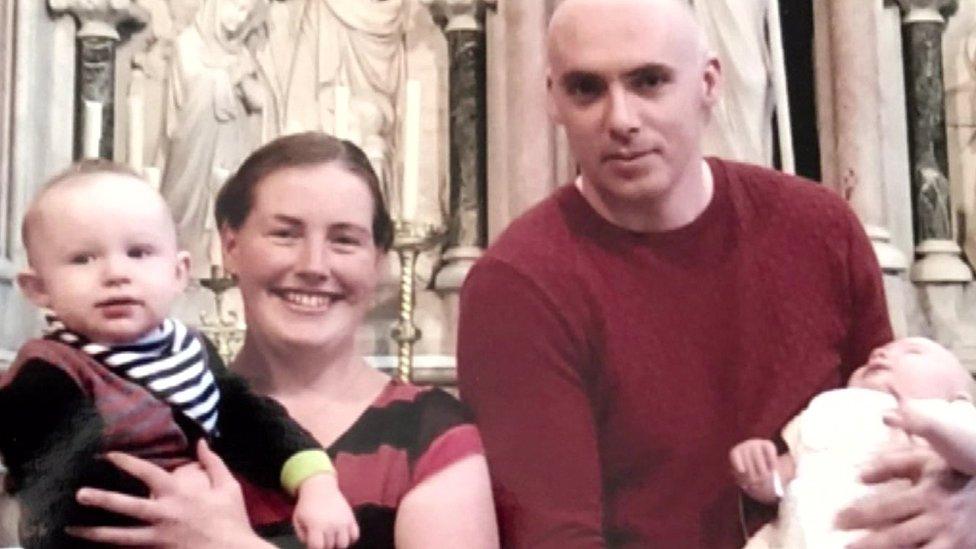
Rita Bentley's partner John Paul McKevitt died after being struck by a lorry while cycling
Rita Bentley's partner went for a cycle nine years ago and never came home.
When travelling on the A1 outside Newry in September 2014, John Paul McKevitt was struck by a lorry and died.
In that instant, everything changed for Rita and their two children: "The life you had is gone and it's so hard."
She remembers how people at the scene were able to keep John Paul alive long enough so they could say goodbye.
"But he never stood a chance," she said.
Rita Bentley's partner John Paul was killed in September 2014
She is just one of hundreds of people across Northern Ireland to have lost a loved one on the roads here, with 61 people having died in incidents between April 2022 and the 31 March this year alone.
For Rita, there was "nothing, no support, no help" after John Paul's death.
"We didn't know where to turn or where to go and we had two very small children. For me, it was a blur."
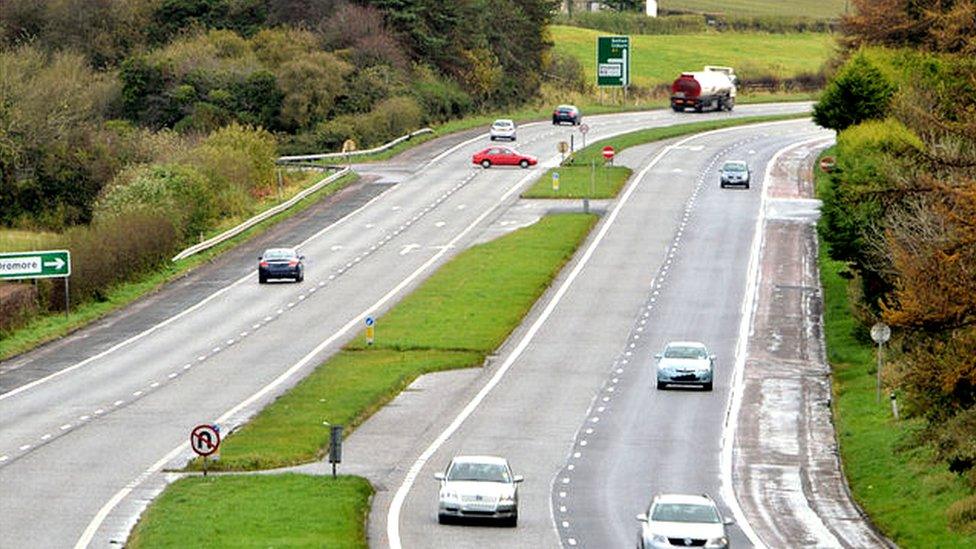
The A1 carries about 40,000 vehicles a day on average
That's why Rita and Monica Heaney, whose son Karl died on the A1, have started a new project, The Road Ahead, which aims to provide support to people affected by crashes.
In May 2018 Karl Heaney was driving home from his girlfriend's house when he was struck by a car travelling on the wrong side of the dual carriageway.
After Karl's death, Monica Heaney campaigned for safety upgrades to the road, culminating with the successful outcome of a public inquiry.
But her grief remains.
She says there is "no support for people following a road traffic collision".
"You hear of a road traffic collision every day but there was nothing, very few services."
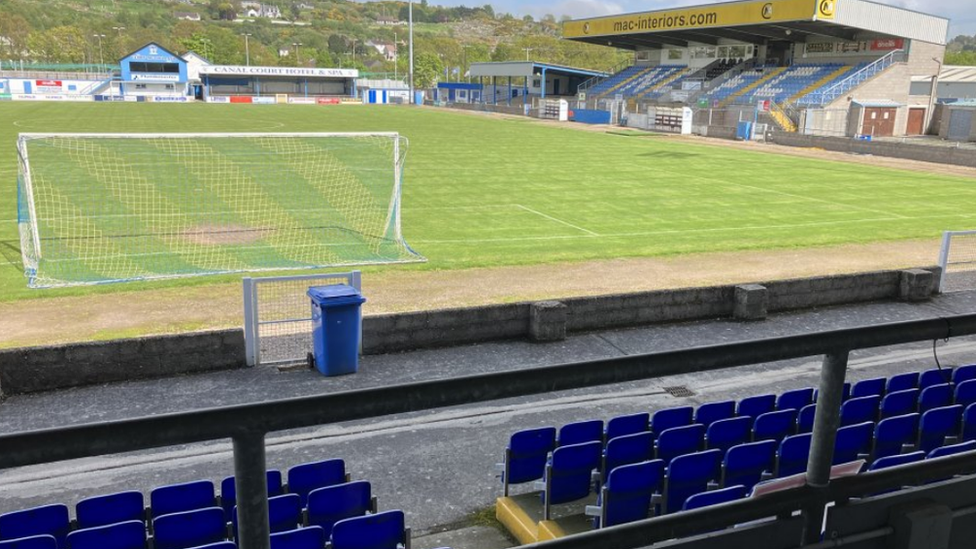
The Road Ahead office is based at the Newry Showgrounds
Rita got involved with Road Safe NI in 2016 and established an office, with Monica, at the corner of Newry City's Showgrounds stadium
"Locally what we aimed to do was educate," Rita said.
"I'm a teacher and I was going out and doing road safety talks to any school that was interested."
For Monica, The Road Ahead is about helping people affected by deaths on the road.
"You can't think straight so you need somebody else to be thinking for you," she said.
"You need somebody else to sit with you and you just want to know that somebody else is there who has been affected.
"Then we can branch on from that to find out what they need."
'They missed one sign'
Court cases, contacting the police, she added - these are things that are totally alien to most people confronted with the sudden death of a loved one in a road crash.
Plus, there are more people affected than just the bereaved, added Monica.
In 2021 two people were given community service and driving bans over the crash in which Karl was killed.
Monica said she realised afterwards that Karl's death was "very complex" and that it wasn't "just about me and my family's grief".
"The two people involved didn't set out to do that. There was no drink or drugs or speeding. They literally missed one sign.
"After a while I began to think, who is supporting them? Do they get any support? Where do they go?"
She continued: "I've had other people contact me who have witnessed a road traffic collision or have been involved in some way but haven't been hurt.
"So there is a whole plethora of things and providing support just to families who have been bereaved isn't enough.
"We need to look at the whole picture."
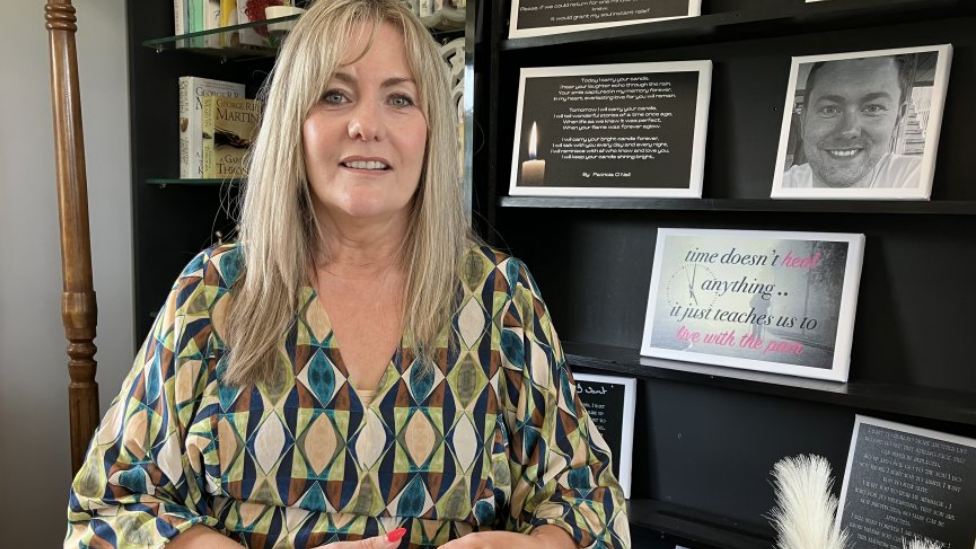
Monica Heaney, whose son Karl died in an incident on the A1, said providing support only to families who have been bereaved is not enough
For Rita, this full picture means different services for different people.
"Everybody's grief is different and individual," she added.
"Some people need practical things - how to deal with solicitors or finances.
"Other people need one-to-one support so we offer counselling with trained counsellors.
"Other people prefer a group so we're hoping to set up a drop-in service.
"We are also looking at therapeutic things like yoga, wreath-making workshops and also a DIY workshop because for me, a female who has lost her partner, DIY is something I would love a wee bit more help with.
"Because all of a sudden I have to be independent.
"I have to be mummy and daddy and I have to do all of those things."
Related topics
- Published4 July 2023
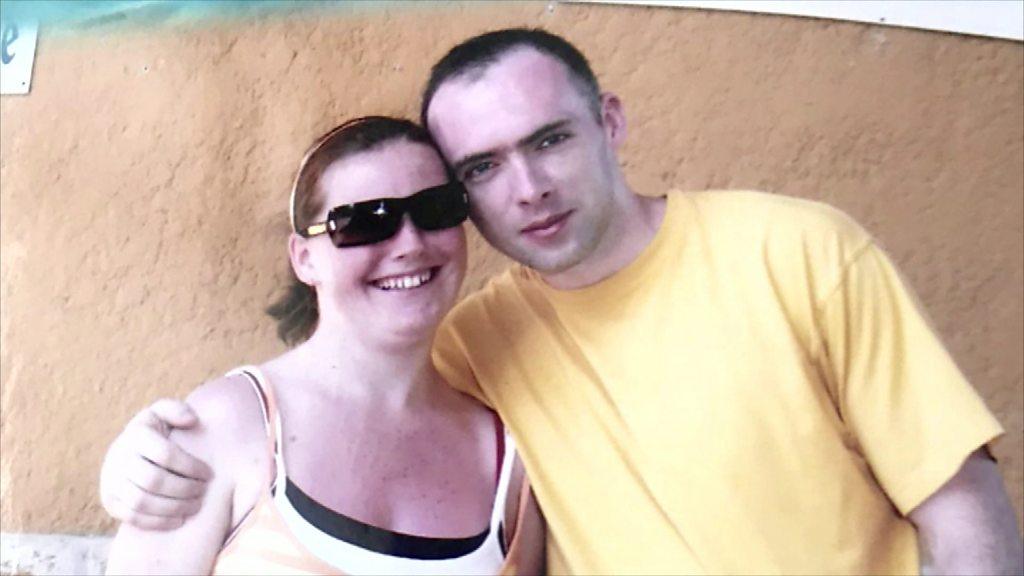
- Published28 January 2021
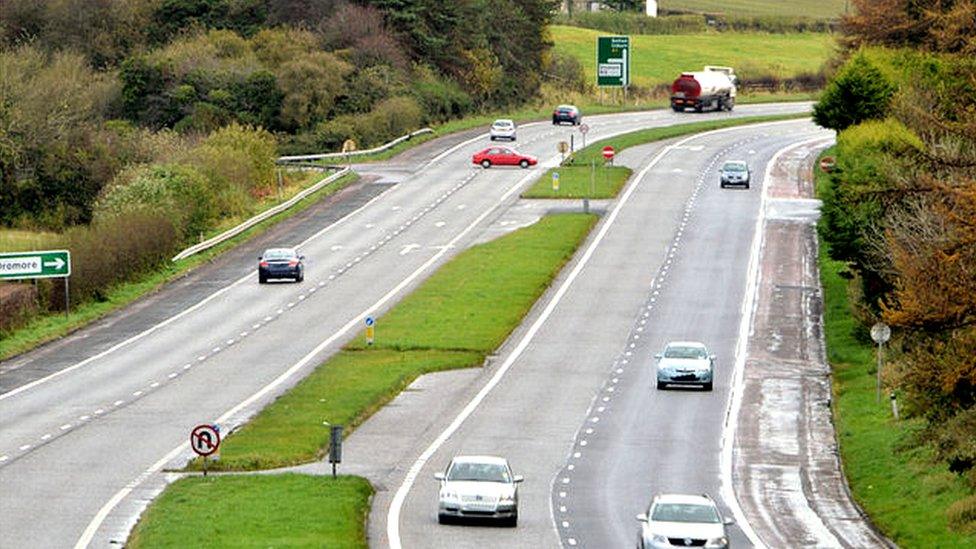
- Published7 June 2021
